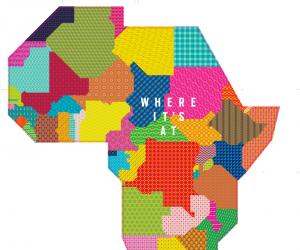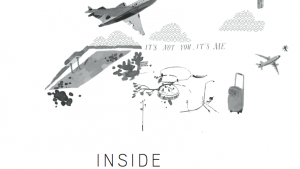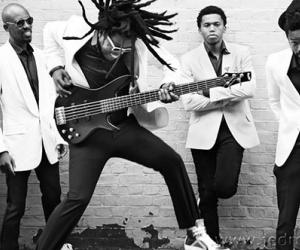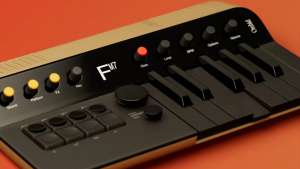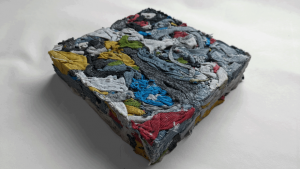Part of the Project
From the Series
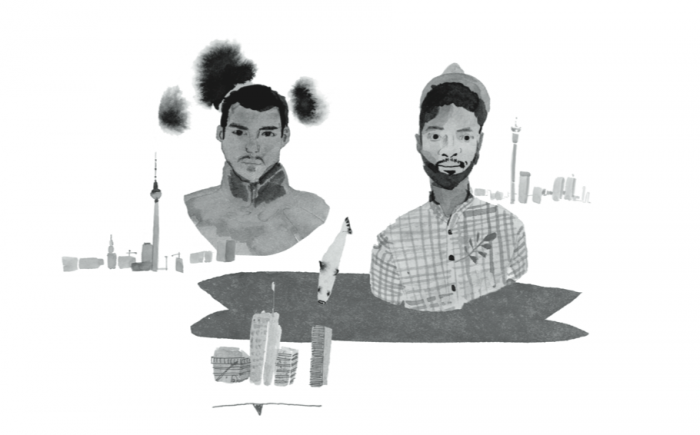
Robin Rhode (RR): So, Mpumi, I’ve just done some quick research on you – very interesting music, congrats to you guys for being so progressive. I’m sure I would have heard your stuff if I was in South Africa, but I’ve been living in Germany for the last 10 years and there’s only so much local material I’m exposed to when I go back home to Johannesburg. I need to get plugged in more!
Mpumelelo Mcata (MM): Mr Rhode! Good to finally chat. I did a bit of research myself, and am holding one of your exhibition catalogues from a show in the UK in my hand right now. Someone very close to me saw the show and loved it, kind of hipped me to your stuff in the process – very fresh! But tell me, why Germany?
RR: I first visited Berlin in 2001 while on an artist residency programme. I immediately fell in love with two things. First the city with its absorbing musical and artistic underground edge. And then I fell in love with a beautiful woman. The combination proved impossible to resist. I guess I’m a bit of a romantic.
MM: Berlin is very cool indeed. Close knit, vibrant and incredibly agreeable to experimentation and the artist, gentrification or no gentrification. We played the Volksbuhne at the 20th anniversary of the fall of the Berlin Wall. What a night! I can totally see how you fell in love with the place.
RR: I watched your World Cup opening concert on YouTube and was struck with emotion.
MM: That concert was quite something for us too. Given that it was broadcast to the world, to play from home soil in Soweto and to play the songs we did – a Brenda Fassie cover and a struggle song – instead of our next “hit single” – it was definitely pretty emotional. It’s good to hear you felt that.
RR: To know that you’ve performed in Orlando Stadium – a site that is integral to our country’s struggle – as well as in the Volksbuhne in Berlin – a site where Hitler marched his Third Reich and blasted his rhetorical speeches on the theatre’s staircases – leaves me awestruck. Brother, I have only respect. This is how we, as the new South Africa, embrace the transcendence of our art and identity.
MM: I guess we all have our amazing moments. I’m sure one of yours must have been creating that massive painting using a BMW as a brush. I remember seeing it and thinking, Wow, that is cool for real... and he’s South African. Oh, and I really love that car purely from a design perspective
I think that work fits in with my general artistic bias for art, be it music, film, fine art, fashion or whatever – anything with a post-futuristic aesthetic that still gracefully carries its ancestral past on its shoulders – work that functions practically and spiritually. Classic but not classical, you could say. That’s the stuff that genuinely gets to me, in the best way.
RR: Thanks. You know, Bob Marley drove a BMW. He said it stood for Bob Marley and the Wailers. So I say, why not embrace the culture!
I read your list of Top Ten Albums of the Decade and was pleasantly surprised to see Björk as number one. Interesting. Personally, I consider Björk to be one of the most experimental and visually creative musicians working today.
MM: Yes, Björk is amazing. Björk is Björk. There is no one like her.
RR: So, Mpumi, tell me where you’re at. Geographically speaking.
MM: We spend a lot of time abroad and every time we’re on tour the conversation of, “Could we live here?” pops up. So far the closest we’ve come to that was an extended stint in New York. We definitely feel a yearning for a different sort of freedom, which seems to be in abundance in the so-called First World. And on the other hand we – or I at least – seem to think more about Africa and South Africa when abroad. It really penetrates my creative subconscious. Hell, sometimes we channel universes we’ve never seen and never will! So, for now, home maintains a strong pull. Specifically where I’m living now – in the old industrial CBD of Johannesburg, in a building on Fox Street. It feels like things are happening here. It’s always been cool, but there has never really been a scene as such. That seems to be changing.
RR: Mpumi, your words make me yearn for the sweet colours and vibes of Johannesburg. Actually, I am fortunate in that I consider Berlin home, but I return regularly to Johannesburg, where I work on the streets, anonymously and unannounced, under the radar of the local art establishment who circle me from a distance.
I’m very surprised that you turned down the opportunity to live and work in New York, a creative hub if ever there was one. New York will always beckon and I have no doubt you will return to its shores to taste that freedom you speak of.
For me, one of the most striking aspects about living abroad is the idea of becoming anonymous within unfamiliar surroundings. The experience of time passing becomes much more internalised.
MM: Your working methods don’t surprise me, Robin... the most interesting and important artists often are ones that need to forge their own paths, and Johannesburg really teaches one that, as it is so lacking in support systems for the seriously cutting-edge voice. Understandable, to a degree, as it is so young in its regeneration. Time is running out though, and therein lies the romance. The world is looking at us now, African youth, but what will we do? Will we settle, just be happy to be here, medicated and cute, celebrating mediocrity, or put our balls on the line and kick ass, take the fight to the doorsteps of Western culture that has picked from our tree for so long? For so long, we have been silent partners in global pop culture.
RR: The death of our Moses Molelekwa in 2001 inspired me to create a work of art last year that underwent different conceptual phases, from South Africa to the European influence of Russian composer Prokofiev. I began to draw parallels between Prokofiev’s violent compositions for piano solo and Molelekwa’s work – two musical greats from two very different historical and geographical positions. You are very correct when you say that South Africa has been a silent partner in global culture. I guess it’s up to us to make both cultures more relational.
MM: We are currently working on our second album and it’s proving to be one of the most interesting and artistically trying times in my life so far. Home is where the hope is, Molelekwa has been in my thoughts often while working. The question is what to do with the fuel, just burn burn burn? Surely not – what must be said? Having trusted the spirits all this while, it’s something we never really paid any mind before – but we must!
RR: In the post this morning, I’ve just received three BLK JKS CDs. I will be having a good weekend listening to it, I can assure you!
MM: Enjoy Robin! REPRESENt repreSent // Peace&#
This conversation was originally commissioned for Where It's At a Design Indaba publication created in collaboration with Richard Hart and disturbance design. View the full series here.

